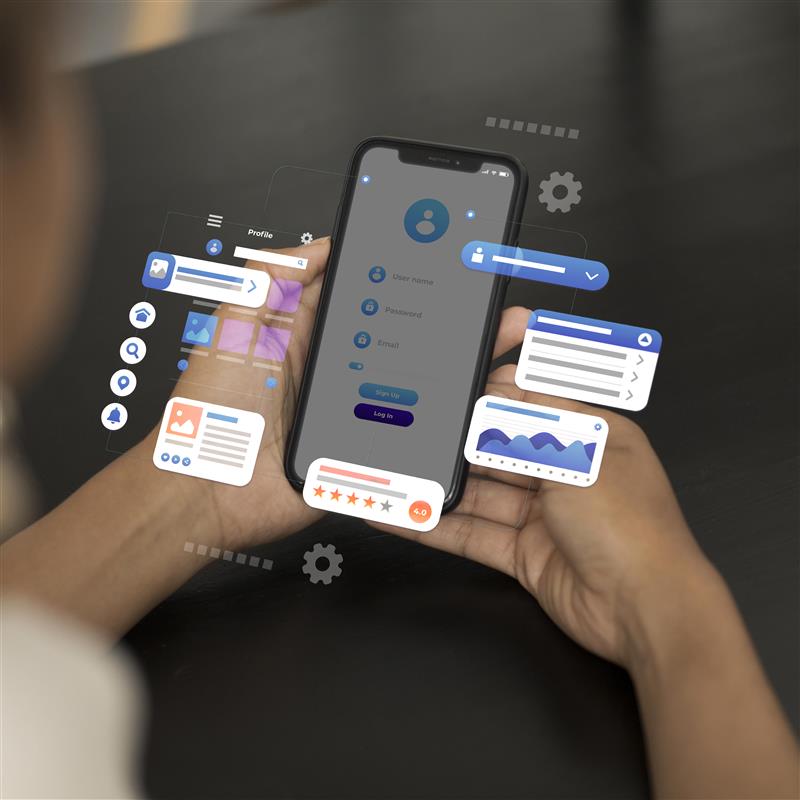Selling More Doesn’t Mean Hiring More
Your e-commerce store is live 24/7. Your team isn’t. Every delayed reply, missed product query, or slow checkout response can lead to cart abandonment and lost revenue. Scaling customer support and pre-sales assistance typically means growing headcount. But what if there were a better way?
AI-powered chatbots are no longer just a support feature. When designed strategically, they become a key part of your sales engine, helping online retailers reduce friction, convert visitors faster, and maintain a high-quality customer experience across all hours. This is why AI chatbots for e-commerce are not just trends; they’re a transformative strategy.
At Ariel Software Solutions, we build intelligent, customized AI chatbots for e-commerce that plug directly into your e-commerce ecosystem, trained to understand your products, assist customers contextually, and close more sales without increasing your operating cost. Our solutions also include secure and flexible OpenAI chatbot integration, which allows the chatbot to engage more naturally and efficiently.
Why AI Chatbots Are Crucial for E-Commerce Growth
Modern consumers expect fast, personalized experiences. They want relevant product recommendations, real-time answers, and support that feels human, even at 2 AM.
E-commerce brands that deliver on this expectation win more customers and retain them longer. Here’s why AI chatbots for e-commerce are becoming a standard across high-growth online businesses. Whether it’s guiding a sale or handling post-purchase concerns, chatbot customer service has become essential for brand growth.
- Instant, Scalable Customer Engagement
AI chatbots for e-commerce respond to product queries, shipping concerns, and sizing questions in real-time, without waiting in a queue. They can serve 10 or 10,000 users simultaneously without breaking. This scalability is powered by tools such as OpenAI chatbot integration, which makes communication context-aware and responsive.
- Higher Conversion Rates Through Conversational Selling
Bots trained on your product catalog can guide shoppers toward the right items, offer discounts at the right time, and provide clarity at decision points, significantly increasing the chances of conversion. With AI chatbots for e-commerce, businesses are closing more sales with less effort. This is where smart chatbot customer service shifts from being reactive to being proactively revenue-focused.
- Lower Cart Abandonment
One of the biggest friction points in e-commerce is indecision. A chatbot can step in when users hesitate, offering personalized help, urgency nudges, or incentives to complete the purchase. Brands that implement chatbot customer service here see significantly lower abandonment rates, especially when backed by real-time insight from OpenAI chatbot integration.
- Reduced Operational Overhead
Instead of expanding support teams to handle repetitive tasks, AI bots can answer common questions, manage returns or exchanges, and escalate only when necessary, reducing the cost per customer interaction. Companies that use AI chatbots for e-commerce benefit from lower operational costs while increasing responsiveness through chatbot customer service platforms.
- Consistent Brand Experience
AI bots ensure every customer gets the same level of service, without tone inconsistencies, knowledge gaps, or delays due to human fatigue or training gaps. Thanks to OpenAI chatbot integration, businesses can ensure that their chatbot customer service delivers consistent messaging that feels brand-aligned and natural across channels.
These chatbots leverage powerful natural language models to understand, respond, and adapt in real time. If you’re curious about how this works under the hood, check out our deep dive “Cracking the AI Code: OpenAI API Integration Like Never Before”
What Makes Modern AI Chatbots So Effective?
Unlike traditional rule-based bots that follow decision trees, AI chatbots are built on advanced natural language models. Using tools like OpenAI chatbot integration, these bots understand and generate human-like responses with context awareness and personalization.
At Ariel, our chatbot solutions are designed with:
- Custom training on your product and brand language
- Integration with real-time inventory and order data
- Support for both pre-sale and post-sale workflows
- A scalable architecture that adapts to your growth
The result is a smart assistant that learns, adapts, and performs like your best customer support and sales rep combined. This is what sets our AI chatbots for e-commerce apart; they’re not just automated responders; they’re intelligent assistants rooted in high-quality chatbot customer service design.
Real-World Use Cases That Drive Results
AI chatbots in e-commerce are more than just automated responders. When properly implemented, they act as intelligent assistants that enhance the entire customer journey, from the first interaction to post-purchase engagement. Whether you need pre-sales engagement or seamless post-sales support, chatbot customer service is the layer that drives trust and action.
At Ariel Software Solutions, we design chatbot experiences that directly contribute to revenue, reduce operational friction, and improve user satisfaction. Here’s how:
1. Product Discovery: Turning Browsing into Buying
Most customers don’t land on your store with a specific SKU in mind. Instead, they ask things like, “I’m looking for breathable gym wear under $50” or “What’s a good casual shoe for walking?”
AI chatbots use natural language processing (NLP) and real-time product database access to:
- Surface relevant items based on price, category, or popularity
- Recommend trending or best-selling products within a specified budget (e.g., “Show me summer shirts under $40”)
- Eliminate dead ends by filtering out-of-stock or discontinued items
When powered by OpenAI chatbot integration, these functions become more responsive and relevant. This enables users to discover products faster, improving session engagement and shortening the time to purchase with the help of AI chatbots for e-commerce.
2. Checkout Assistance: Preventing Abandonment in Real-Time
Cart abandonment remains one of the most expensive problems in e-commerce, with over $4 trillion worth of products left unpurchased globally each year. Much of this comes from avoidable issues like:
- Unclear return policies
- Promo code confusion
- Sizing uncertainty
- Payment method doubts
AI chatbots can be configured to:
- Offer real-time assistance when checkout stalls
- Clarify shipping timelines (e.g., “Will this arrive before Friday?”)
- Provide personalized discounts (e.g., “Here’s 10% off if you complete your order in the next 10 minutes”)
- Resolve payment-related queries instantly
With OpenAI chatbot integration, checkout flows become intuitive and less stressful. This is one of the most effective areas where chatbot customer service can directly impact revenue.
3. Customer Support: Automating Answers Without Sacrificing Quality
Most first-level queries, like “Where’s my order?”, “What’s your return window?”, or “Is this available in size M?” don’t require a human touch. They just require fast, accurate information.
By integrating your chatbot with back-end systems (order tracking, inventory, policy documentation), it can:
- Deliver real-time shipping updates
- Walk customers through the return and exchange processes
- Handle inquiries on product availability and variants
- Escalate only when necessary to human agents
This not only reduces your cost per ticket but also ensures customers receive immediate, round-the-clock service without delay or inconsistency. Chatbot customer service powered by AI chatbots for e-commerce makes this possible while staying on-brand, thanks to OpenAI chatbot integration.
4. Lead Qualification: Capturing High-Intent Visitors Before They Bounce
Every visitor to your website is a potential lead. But not every visitor is ready to buy. An AI chatbot can help separate browsers from buyers through contextual engagement.
For example, a visitor lingering on a pricing page or bundle offer might be prompted with, “Looking for a custom package under $100? Tell me what you need, and I’ll guide you.”
Through smart workflows, the chatbot can:
- Ask qualifying questions (e.g., budget range, use case, timeline)
- Capture contact details (email, phone, company size)
- Push qualified leads to your CRM or notify your sales team in real time
With OpenAI chatbot integration, this qualification process feels more like a conversation than a form. This not only increases engagement but also ensures AI chatbots for e-commerce are contributing to pipeline growth.
5. Loyalty and Feedback: Driving Retention Through Post-Sale Engagement
The customer journey doesn’t end at checkout, and neither should your chatbot.
AI chatbots help maintain and deepen relationships by:
- Asking for reviews 2–3 days after delivery
- Offering loyalty points or discount codes for future purchases
- Recommending related products (e.g., “You got the $60 sneakers; want matching socks for $12?”)
- Sending refill or reorder reminders for consumable products
- Collecting quick feedback with NPS or CSAT prompts
This not only increases repeat purchase rates but also generates valuable data to improve your products and services. Chatbot customer service built into your lifecycle strategy is a key strength of AI chatbots for e-commerce solutions done right.
How Ariel Builds AI Chatbots for E-Commerce
Ariel Software Solutions offers fully customized chatbot development services tailored to your e-commerce architecture and business logic. Our process includes
- Discovery & Goal Mapping: Understanding your target users, top-performing SKUs, and conversion bottlenecks.
- Custom Training & NLP Optimization: Using OpenAI chatbot integration fine-tuned on your product data, brand tone, and user queries.
- Platform Integration: Connecting the bot with your CMS, inventory system, CRM, and payment gateways for full functionality.
- Testing & Performance Monitoring: Continuous learning loops and conversation analysis to improve bot performance over time.
Our focus is not just on building a chatbot but on delivering a high-converting, intelligent, and scalable digital assistant that becomes an asset to your business. This is how we deliver AI chatbots for e-commerce that offer real results across every customer journey, starting with chatbot customer service excellence.
Whether your business needs a fully custom AI agent or a more plug-and-play integration with ChatGPT, we help you choose the best path based on performance, cost, and scalability. To better understand the difference, read “Custom AI Agents or ChatGPT Integration: What’s Better for Your Business?”
Conclusion

The future of e-commerce doesn’t depend on larger teams. It depends on smarter systems. AI-powered chatbots are no longer a nice-to-have; they’re a competitive advantage. They allow you to engage every visitor, every time, with speed, intelligence, and brand consistency.
At Ariel Software Solutions, we’ve helped brands build intelligent chatbot systems that go beyond scripted support and into real-time revenue generation. If you’re looking to improve conversions, reduce support costs, and future-proof your e-commerce experience, now is the time to act.
Ready to turn your store into a 24/7 selling machine?
Book a consultation with us, and let’s build your AI chatbots for e-commerce solutions with secure, scalable OpenAI chatbot integration and world-class chatbot customer service capability.
Frequently Asked Questions (FAQs)
Can an AI chatbot help with sales, or is it just a support tool?
Yes. When integrated properly, AI chatbots for e-commerce guide users through discovery, offer upsells, and help close sales, contributing directly to revenue, not just support.
How accurate are AI chatbot responses?
With proper training on your product catalog, FAQs, and customer queries, accuracy is extremely high. We also fine-tune bots regularly to improve over time, especially with OpenAI chatbot integration.
How long does it take to implement a chatbot?
Typically, a full chatbot customer service solution can be delivered within 3–5 weeks, depending on the scope and integration requirements.
Will the chatbot sound robotic or impersonal?
Not at all. Using advanced language models like GPT-4, we ensure the bot speaks in a natural, conversational tone aligned with your brand voice, all powered by OpenAI chatbot integration.
Is it secure to let a chatbot access order or customer data?
Yes. We implement strong data protection practices, API authentication, and encryption to ensure chatbot interactions are safe and compliant. Your chatbot customer service infrastructure is always secured.




